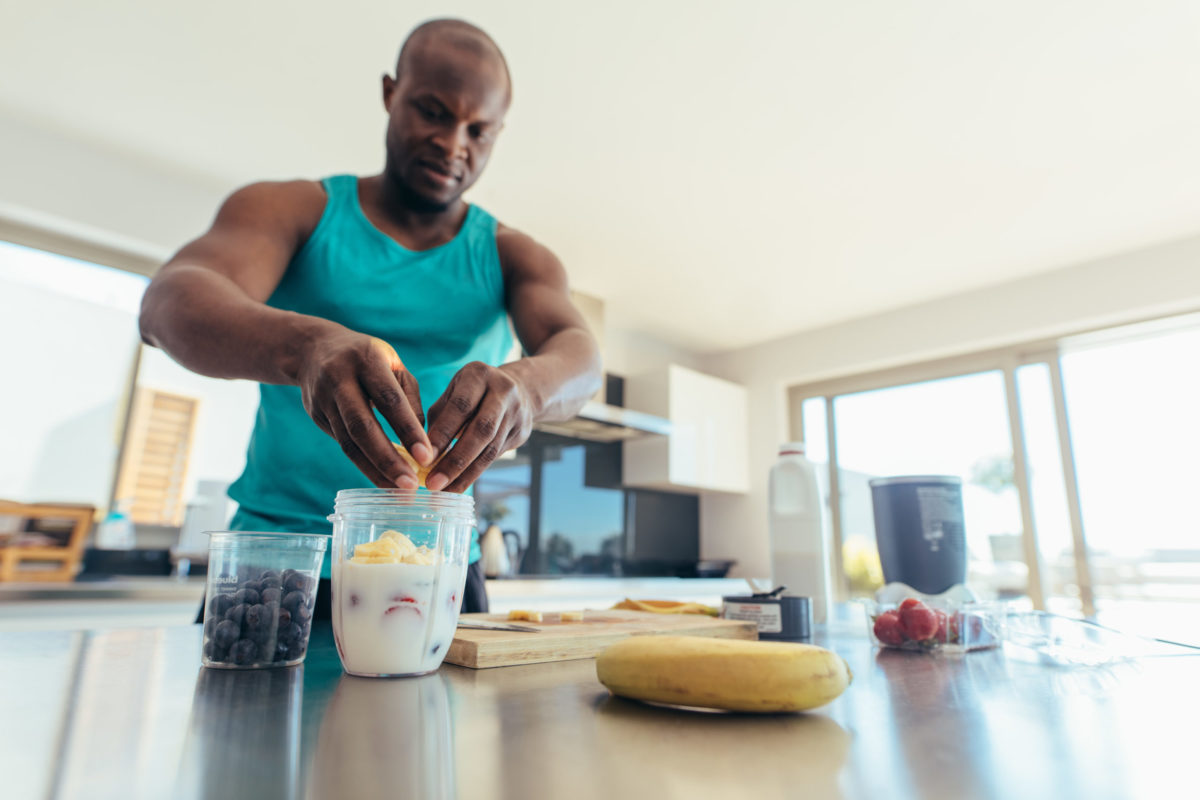Are you the kind of person who feels hungry after exercising? Or does working out take away your appetite for a while?
Either way, it’s best to eat after you exercise, says Leslie Cornett, a registered dietitian and nutritionist for BlueCross BlueShield of Tennessee.
Cornett explains that your body breaks down glycogen and protein when you exercise, and it’s a good idea to replenish your supply soon afterwards. For about 30-45 minutes post-workout, your cells are better able to absorb nutrients.
But it’s important to eat the right thing so you can make your post-workout food really work for you.
Focus on Proteins and Complex Carbs
Cornett recommends a post-workout snack that includes both lean protein and a complex carbohydrate. Carbs are fuel for your muscles, while protein helps rebuild and repair, according to the Academy of Nutrition and Dietetics.
Ideally, you want a snack or meal with a carbohydrate-to-protein ratio of 3:1. So if you consume 60 grams of carbs, you’d also want 20 grams of protein. There’s a tendency these days for people to lean more heavily toward protein, but you really do need to include more carbs in your post-workout meal, Cornett says.
Cornett recommends that you try these healthy post-workout combinations:
- Quinoa with grilled salmon
- Whole wheat pasta with grilled chicken
- Brown rice with tuna
- Whole grain toast with almond butter or peanut butter
- Greek yogurt with fresh berries mixed in
You can mix and match the lean protein sources and whole grain carbohydrates, too, in case you prefer to eat certain ones more (or less) often. You could cook up some oats and then add an egg. Or keep the egg but swap out the oats for a piece of whole grain toast with a slice of avocado on top.
You could also add a banana to a protein drink, or make a smoothie with milk and fruit.
“Definitely avoid highly processed, refined foods, fast foods, and really heavy foods that are going to weigh heavy on your stomach,” says Cornett.
Generally speaking, a longer workout would probably require a larger snack. So, consider the length of time you’re going to be exercising when considering what to eat.
A note of caution: if you have a chronic health condition like diabetes or kidney disease, talk to your doctor about pre- and post-exercise nutrition. Balance will be especially important for you, and you may need to make very specific plans.
What about drinks?
You’ll definitely be thirsty after walking, running, riding a bike, or lifting weights. Water is nearly always your best bet to rehydrate.
“In most cases, water is going to do the job just fine,” says Cornett.
Sports drinks can be appropriate for athletes who spend an hour or more engaged in a moderate-to-high intensity activity that results in heavy sweating, according to the Academy of Nutrition and Dietetics.
But for those of us who are not putting in such long, heavy workouts, sports drinks aren’t necessary, Cornett says. Plus, sports drinks often contain a lot of sweeteners, which can mean a lot of extra calories.
Find your sweet spot
If you’re not accustomed to eating anything after exercising, you may need to experiment to find something that appeals to you and meets your needs. Don’t be afraid of some trial and error, as long as you make it your goal to find a snack that combines carbs and proteins in the right balance.
Get more information about specific health terms, topics and conditions to better manage your health on bcbst.com. BlueCross BlueShield of Tennessee members can access wellness-related discounts on fitness products, gym memberships, healthy eating and more through Blue365®. BCBST members can also find tools and resources to help improve health and well-being by logging into BlueAccess and going to the Managing Your Health tab.



WellTuned provides inspiration and practical advice for healthy living.
WellTuned does not offer medical advice. Any personal health questions should be addressed to your doctor.